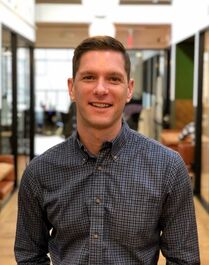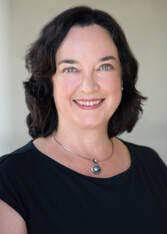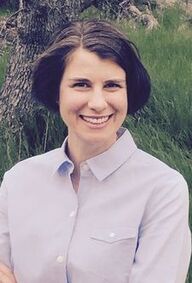|
In 2019, One Schoolhouse marked its tenth anniversary. It was a time to reflect on growth and to realize that what was once a radical idea–high quality online courses driven by learner engagement–had become mainstream.
As part of our reflection, we drew on an Academic Leadership Competency: Assess the present, understand the past, and design for the future. When we took a look backwards, we found inspiration for our newest project: the Association for Academic Leaders, powered by One Schoolhouse. On April 1, we’ll open the Association’s preview period–three months for inaugural members and consortium schools to access just some of the community and learning that support the success of Academic Leaders in independent schools. When we launch the Association on July 1, the full range of resources and connections will be available to members. As the preview of the Association for Academic Leaders opens, you’ll notice some changes. Here’s a look at what you can expect.
If you’re not an Association member and want to take advantage of new member benefits like Live on Wednesdays, and member-exclusive programming, including online courses and cohorts, reach out to Sarah Hanawald for more information. We hope you’re as excited by these updates and refreshes as we are!
0 Comments
 Brad Rathgeber Brad Rathgeber In the last few months, I’ve been intrigued by the think pieces that describe the COVID-19 pandemic not as the source of radical change but instead as an accelerant for trends that were already slowly taking place. If we take that perspective to examine the roles of Academic Leaders in our schools, we can see acceleration in a number of areas. Pre-pandemic, our roles were certainly complex and required regular upskilling. In pre-pandemic years, Academic Leaders might learn new skills in communication, lead change initiatives, or strive for closer alignment between the mission of the school and the academic program. The advent of COVID-19, however, meant that building these skills–often, all these skills and all at once–became imperative and urgent. As we return to some sense of normalcy, we know that our jobs won’t go back to what they were prior to COVID-19, but also know that we cannot sustain the speed of growth and development that we had to adapt to. So, how do we set charts for growth that are sustainable? Enter the idea of competencies. Educators have become more familiar with competency based learning for students over the last number of years. For reference, a competency is a cultivable collection of skills that captures what is valued and is measurable. A competency based approach, whether for students or adults, allows for individual paths for growth – there is no one-size-fits-all. Thus, prior knowledge and experiences are valued, as are the needs of particular roles and circumstances. When One Schoolhouse set out to build the Association for Academic Leaders, we knew we could best serve the community by both honoring the formidable experience of Academic Leaders and providing the resources and community they can use to rise to any occasion. Let’s take an example using one of the Association for Academic Leaders competencies: “Shape a just and inclusive school.” Many Academic Leaders had been working hard to build this competency prior to the COVID-19 pandemic, and some were jolted to deeper engagement with this competency by a summer of racial reckoning in 2020. Every leader and community, however, is unique. Some independent schools have a long history of centering inclusion and belonging, while others are creating measurable goals for progress and accountability for the first time . A competency based approach to development recognizes and values that Academic Leaders were and are at different stages in their journey for building this competency, and helps them grow from there. In academic leadership, it’s all too easy for the urgent to gobble up time that’s reserved to tackle the important. By identifying competencies, the Association for Academic Leaders provides the pathways that both direct us to the essential work that drives schools forward and defines pathways for growth and development. Academic Leaders are closing out their third disrupted school year this spring. It’s time to take a breath and re-center the work that’s at the heart of schools. The pressure of the urgent is finally lifting. As we launch the Association side-by-side with Academic Leaders, we’re here to offer the opportunity and the community that can help you connect with and develop what you value most.  Sarah Hanawald Sarah Hanawald In the past few weeks, my calendar has been filled with conversations with independent school Academic Leaders. These conversations have been varied and engaging. I’ve connected with Academic Leaders from schools across the country, both large and small, boarding and day, urban and rural, and so on. As diverse as the schools and the leaders are, there's a thread going through these conversations, whether I’m speaking with the Assistant Head of School for Academics at a K-8 with just under 50 total faculty members, or the chair of the English department at a large school with over 15 faculty members to lead. Academic Leaders are concerned about sustainability, not just in the larger global environmental sense, but in the personal, ‘How do we sustain our people?’ sense. There’s the “right now” sustainability: Can we sustain the fragile optimism we share right now as mask mandates and hospitalizations drop? We’ve been here before… Timing plays a role. Academic Leaders are concerned about the well-being of students and teachers in a school year that’s about to begin concluding, an oxymoronic phrase that captures the season of school life that begins after spring break, and gathers speed and intensity until the end of the academic year. As they look ahead, Academic Leaders are wondering, “How can I help support each person relying on me?” There’s also a longer view at play in their consideration: will the teachers and students return for 2022-2023? The data on both are confusing and mixed, and one’s perspective on enrollment changes and hiring in the face of “the big quit,” is dependent upon the factors particular to an individual school’s situation, geography, and community. Academic Leaders are wondering, “How can I help sustain the community we’ve built and nurtured?” There’s a topic I’ve learned to ask about if it doesn’t emerge after the conversation has covered these more external concerns. “How are you managing your sustainability?” I ask, because I know that the mindset of many Academic Leaders is to keep themselves on a back burner. Here’s where the conversations get real and everyone wants to be off the record: Academic Leaders are worried about their personal capacity to continue to serve well, too. At the end of some days, they step away knowing they’ve left things undone and unanswered, and they hope that they've been perceptive enough in their to-do list triage that they’ve picked the right things to leave to tackle tomorrow. Academic Leaders are also concerned about the sustainability of their profession. Almost a year ago, the National Association of Independent Schools (NAIS) shared that “more than half of heads intend to transition from their current jobs within the next five years…and over 60% of administrators plan to transition out of their job during that time frame.” Said one Academic Leader, “I don’t know where the next generation of leaders is going to come from if they’ve been watching us and seeing this as a model.” And yet…that’s not where the conversations end. Academic Leaders remain optimistic and future focused, convinced that their work supporting mission-aligned teaching and learning matters. After sharing their concerns, what I inevitably hear next is a version of what another leader said, “Thank you for a place to make the personal connections I need to do my best work–that’s the key to sustainability.” We’re honored to be making this space for Academic Leaders to sustain themselves and further the work they do every day. We’re here for you, Academic Leaders, whether it’s in providing the classes you need to grow your competencies, the connections you need for insights, or access to the voices of those who inspire you.  Corinne Dedini Corinne Dedini In the past three years, One Schoolhouse has seen enrollment skyrocket in our language learning courses. To meet demand, we now offer four complete sequences in Chinese, French, Latin, and Spanish, and are building a complete American Sign Language sequence as well. (We’ll offer ASL - Intermediate I in 2022-2023; the sequence will be completed when we offer ASL - Advanced in 2023-2024.) In working with dozens of schools, and hundreds of students, we’ve learned that language study in the United States varies widely–and we’ve evolved our offerings in response. Schools and parents/guardians often have an assumption that there is a specific outcome to second language acquisition: proficiency, or “native” proficiency. Yet only 1% of Americans are proficient in the language they studied in high school. Americans who are bilingual almost always either grow up with opportunities to speak in more than one language in their homes and communities, or have immersion experiences. Language study in the typical high school schedule just can’t replicate those opportunities. Studying a second language in high school classes, however, does offer an array of other options that are equally meaningful. Students can leverage their language study to expand their world view. They can explore cultural components of communication. High school language study can also lay the foundation for long-term proficiency in the target language. When we take a step back, we can see that these three perspectives could culminate in wildly different outcomes. With that understanding in mind, One Schoolhouse has built our course sequences with the goal of honoring each student’s objectives in studying a language. We see our scope and sequence in language study as an expansion of our commitment to personalized pedagogy. We now offer a choice of courses at both the entry point and the culmination of language study. Students who wish to elect traditional language study with a focus on grammar and vocabulary can begin in our Beginning II course, and progress to AP coursework. Those who want to focus on applied language study with a focus on cultural competence, may start in Beginning I and culminate in Intermediate or Advanced courses. To accommodate these varied goals, each language sequence may include up to seven courses. To learn more about our sequences in American Sign Language, Chinese, French, Latin, and Spanish, we encourage you to visit the page dedicated to our language course offerings. If you’d like more information, please contact us at [email protected].  Peter Gow Peter Gow How far do you have to look before you find the word “prep” (or preparatory) in your personal independent school world? Upper or lower case; doesn’t matter. Not very far, I’ll bet. Your school’s literature, perhaps its name, and possibly a league or affiliation of some sort. Independent schools have been known as “prep schools” for years. Many K–8s or 9s have been known to embrace the descriptor “pre-prep,” which is kind of redundant or maybe an oxymoron, depending on how you read it—right? (The estimable Prep for Prep organization has it right, though.) It’s all in the preparation, or is it the presentation? We want our schools to look like a tasty collation served up to families on a silver tray with the promise of more shiny delights to come. Serve up a juicy college or next-schools list, and schools like to imagine families doing happy dances at the thought of the future they will be guaranteeing their offspring. So, it’s practically official: Independent schools are all about preparation for the next level. We prepare our secondary students to be college first-years (freshman, in oldspeak) and our pre-secondary kids to be ninth or tenth graders at some suitably desirable place that will in turn. The world is in a pickle these days, and that pickle has been sliced into spears ripping through the hearts of democracy, human comity, and the salubrity of the air we breathe and water we drink. An autocratic madman is threatening to push the nuclear button even as the planet warms and our animal and vegetable neighbors are going extinct at record rates. So, yes, of course we need smart, clever people, well prepared in the academic realms to take on metastasizing challenges. That’s why curriculum and instruction matter, and that’s why it is critical to make what we teach relevant to the lives we all (including students, duh) live. People, let us also remind ourselves of all that lovely language about values and missions that too often appear as a garnish on the silver tray of “prep”-ness. The customers may love to hear this stuff, but in the end it’s the next tangible thing, that desired next place, that too often matters. As educators on the ground, in classrooms and in residences and on fields and stages and in dining halls, we know our students, and in our hearts we know what they need and how badly we want to help them achieve it. And as educators we generally know and feel that this whole “next place” thing is a sideshow. As educators we don’t want to be producing first-year students at that next place but rather good, purposeful, empathetic, curious, and emotionally accessible human beings who will have the dispositions to take all the stuff they have learned and experienced in the activities and classes printed on their transcripts and apply this to the greater good. Don’t we? This isn’t new. My teachers many decades ago wanted this for me more than they cared about what college I went to; that might have mattered to my family and to the head and board, but my teachers wanted to make me a better person. (Well, the jury is probably still out on how that worked out.) They wanted to prepare me and my classmates to face the world and its challenges even more than they wanted us to get a hundred on some quiz to facilitate our admission to the colleges of others’ dreams. I am aware that in writing about this there is a danger of sounding as though I am putting the task of fixing the world on the students. I don’t mean to, and I have addressed this issue elsewhere. But the students are the future, and while we elders can flip our own switches to mobilize erstwhile take-to-the-streets idealism and play our own roles in pushing for a better world outside of school, our activism includes how we choose to approach our work in schools. We know damn well that we’re not just preparing human widgets for the next stage in their processing into college graduates with good jobs and nice cars. We do what we do and generally work where we work not because of the pay and prestige but because we want to make a difference. In all schools—I focus on independent schools here but this extends to schools in every sector and to the entities that run them—we need to make sure that those whose roles tend to relate most closely to material outcomes, whether they be senior leaders or boards, for example, are also truly committed to the belief that schools must concern themselves less with preparing someplace else’s first-year students and more with preparing the good, purposeful, empathetic, curious, and emotionally accessible human beings the world needs—even more than it needs college graduates. Circumstances continue to reveal that many of the material objectives we have held sacred have some rot at their core. College admissions haven’t smelled quite the same since the Varsity Blues scandal broke, and even “reforms” there are vulnerable. The pandemic and recent political trends have revealed the continuing pervasiveness and power of racism and injustice as well as the ease with which lies can be embraced as truths that motivate, well, evil. Forget being “prep schools” for some next place. Think about preparing ourselves, our students, and our schools for the next week, next season, next year, and next era. We want these actually to come to pass and to turn out well for all of humankind and every other form of life on earth, don’t we? |
Don't miss our weekly blog posts by joining our newsletter mailing list below:AuthorsBrad Rathgeber (he/him/his) Archives
July 2024
Categories |

 RSS Feed
RSS Feed